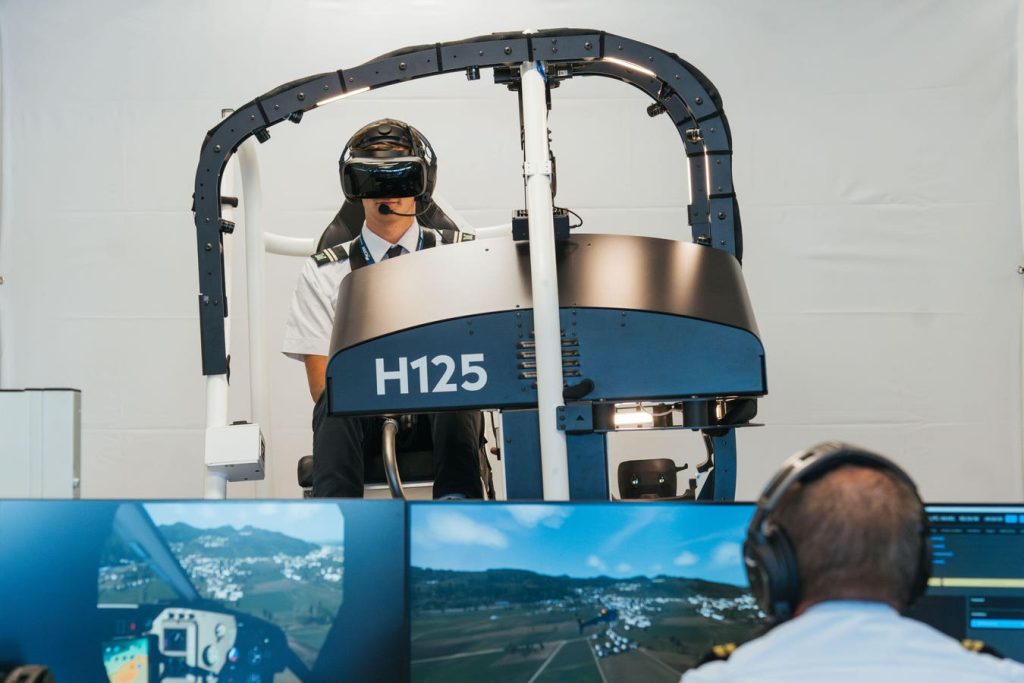Loft Dynamics, a Swiss startup, aims to revolutionize pilot training with their virtual reality flight simulators. These simulators are smaller and more affordable than traditional full flight simulators, making them more accessible to a wider range of users. Loft’s CEO, Fabian Riesen, believes that their technology will help alleviate the pilot shortage facing airlines and reshape the flight training industry.
One of the key achievements for Loft is the qualification of their Airbus H125 helicopter simulator as a Level 5 Flight Training Device by the Federal Aviation Administration (FAA). This makes it the first VR simulator to be approved by the U.S. safety regulator. While the simulator does not have all the capabilities of a full flight simulator, it can be used for training towards private or commercial pilot ratings, substituting some required flight hours in an actual helicopter.
The use of virtual reality in Loft’s simulators offers benefits such as a 360-degree field of view and more accurate depth perception for trainees. This allows for better training for maneuvers close to the ground and specific tasks such as carrying loads slung below a helicopter. Loft is also working towards qualifying as a Level D full flight simulator, which would require proving the accuracy of their motion mechanism and weather simulation capabilities.
Loft’s simulators have started to save time and money for their customers, with Swiss air rescue company Air Zermatt purchasing a simulator to avoid time-consuming travel for training. Cheaper, more widely available simulators could help drive down the cost of pilot training, which is becoming increasingly expensive for airlines facing a pilot shortage. Loft has already delivered 40 simulators and is aiming to expand into the airplane market.
Despite the potential for disruption in the flight training industry, Loft faces challenges from established simulator makers like CAE, who may push back against the adoption of VR technology for training. The FAA’s strict requirements for simulators, especially for Level D certification, could also pose obstacles for Loft. However, Loft remains confident in their technology and their ability to meet the FAA’s requirements for full flight simulator qualification.
Overall, Loft’s innovative approach to pilot training with virtual reality simulators has the potential to transform the industry and make training more accessible and cost-effective for aspiring pilots. With the support of investors and a growing customer base, Loft is poised to become a major player in the simulator market, disrupting the traditional model of pilot training and potentially leading to significant changes in the way pilots are trained in the future.


